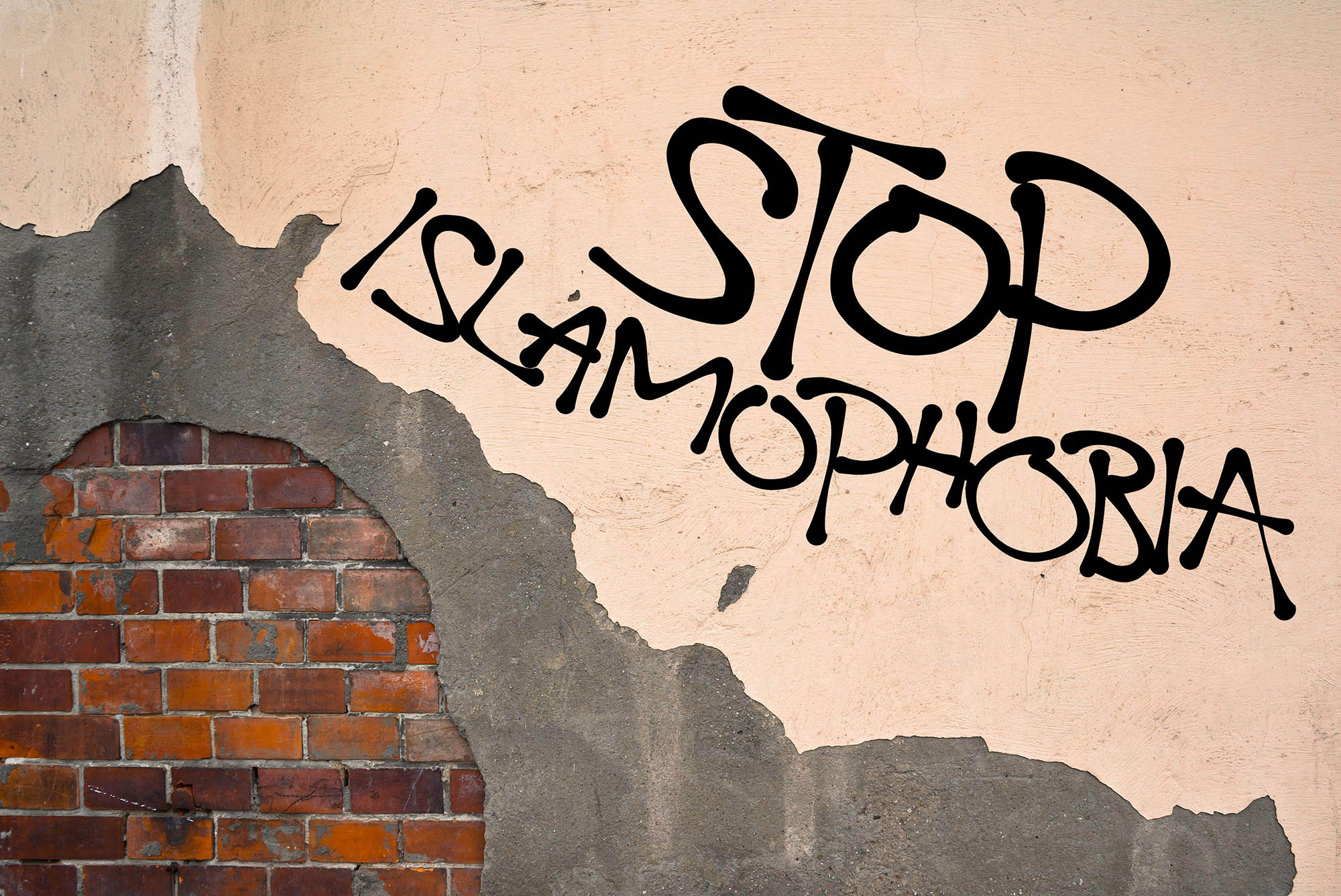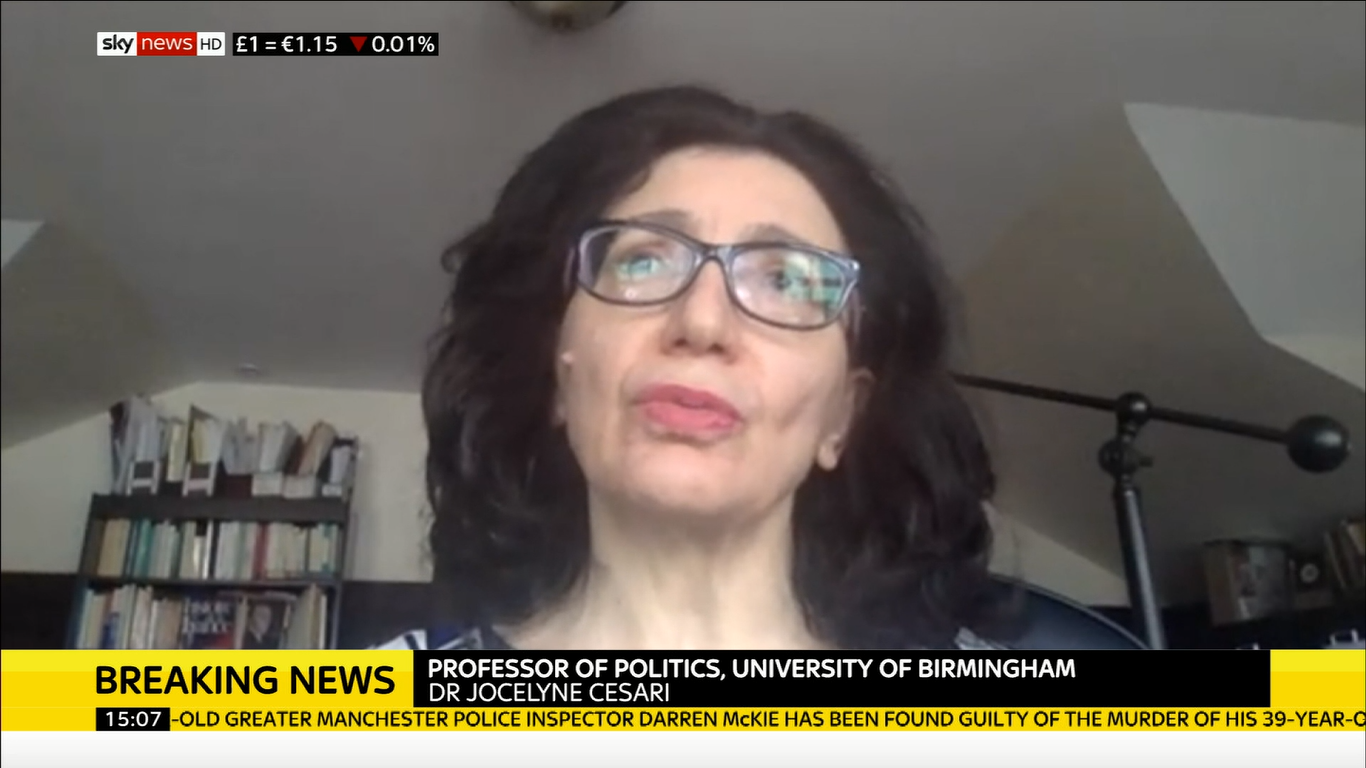GM: In Switzerland, a majority voted for a ban on minarets; in France and in Belgium, the Islamic headscarf is being heavily debated; in Italy the crucifix is coming under fire. And also here in Germany the debate surrounding Muslims is often hysterical. Why do Europeans fear religious symbols or “foreign” religions so much?*
The debate in Europe has shifted in some 25 years (a whole generation) between immigration and the visible symbols of Islam. Which creates a paradox: even people who were opposed to immigration acknowledge now that the second and third generation of migrants are here to stay and that Islam has rooted itself within Europe. So now the debate is about the status of Islam. And here we have a strange phenomenon: while anti-immigration feeling is mainly associated with the conservative right, anti-Islamic sentiment is to be found on both the left and the right, but for two very different reasons. For the right, Europe is Christian and Islam should be treated as a tolerated, albeit inferior religion. There is (unfortunately) no way to ban it (because of the principle of “freedom of religion”, inscribed in our constitutions, international treaties and UN charter), but there are means to limit its visibility without necessarily going against the principle of freedom of religion (for instance the European Court of Human Rights did not condemn the banning of the scarf in French schools). For the left, the issue is more generally secularism, women’s rights and fundamentalism: it opposes the veil, not so much because it is Islamic, rather because it seems to contradict women’s rights. Hence the debate on Islam disguises a far more complicated issue: what is a European identity, and what is the role of religions in Europe; and of course, on these two issues the left and the right take very different positions. But we are witnessing the rise of new populist movements (like Geert Wilder’s In Holland) mixing both approaches, basically siding with the right but using leftist arguments.
*GM: In your book you say that fundamentalists like Al-Qaida have nothing to do with the tradition of Islam. But for the people of Europe, they appear very traditional… Are Al-Qaida and similar organisations and movements a modern phenomenon? Can you explain this matter?*
The kind of terrorism perpetrated by AQ is unknown in Muslim history, as well as in “Christian” history. So in any case it is a recent phenomenon. If we consider some of its main characteristics: suicide attacks, execution of hostages, targeting civilians; they all have been put into practices recently by other organizations before AQ: The Tamil Tigers used suicide attacks, the Italian extreme right (Bologna bombings in august 1980), Italian Red brigades: if you look at the video of the execution of foreign hostages by AQ in Iraq, it follows precisely the “staging” of the execution of Aldo Moro by the Red Brigades (banner and logo of the organization, hostage hand-cuffed and blind folded, a group of “militants” staging a mock trial, lecture of a “sentence” and execution). By its modus operandi, its form of organization, its targets (US imperialism), and recruitment (young western educated Muslims or converts to Islam) it is obvious that AQ is not the expression of a traditional Islam (even fundamentalist) but of a recasting of Islam under the cloak of western revolutionary ideology.
*GM: Are there similar Christian organization? Can we find a similar development in Christianity?*
It depends what you call “Christian” (and that is the same issue for Islam): is violence motivated by faith or by a political ideology? I argue that in both cases the motivation is driven far more by ideology (even claiming a religious legitimacy) than by faith. There has certainly been “white” western terrorism (Oklahoma bombing in 1995, for example). But in fact, there is no real parallel: the present struggle looks more like an asymmetric warfare; Islamic radicals have no air force or air-carriers. A radical Christian crusader who wants to fight Muslims does not need to enter into a terrorist organisation: he can just enlist into the US air force and become a fighter-bomber pilot. The US media have well documented the fact that the Colorado Springs US Air force Academy of is a hotbed of Christian evangelicalism (at the expense, by the way, of Jewish or atheist cadets) (note: Air Force Removes Chaplain From Post: Officer Decried Evangelicals’ Influence, By T.R. Reid, Washington Post Friday, May 13, 2005)
*GM: How do you explain the success of such radical movements/ ideologies? Are poverty and exclusion really the reasons for it?*
No. All the research shows that there is no correlation between poverty and radicalisation: there are far more Saudis than Bangladeshis (in fact almost no Bangladeshis) among the radicals. I think that the present struggle is a continuation of the old fault-line of anti-imperialist, third-worldist movements against the West and specifically the USA. Bin laden says little about religion, but mentions Che Guevara, colonialism, climate change etc. It is also clearly a generational movement: AQ is a “youth” movement of young people who have split with their families, their social milieus and are not even interested in the family’s country of origin. There are an astonishing number of converts within AQ, which is now acknowledged but not taken into account. The converts are rebels without a cause who would have joined the Rote Army Fraction or the Red Brigades thirty years ago, but now they have joined the most successful movement on the anti-imperialist market. We are still in the continuity of a mostly western revolutionary millenarism that has turned away from the concept of establishing a new and just society. The new movements are profoundly sceptical about building a good society, hence their suicidal dimension (also to be found with the RAF).
*GM: Today some Europeans maintain that European culture is essentially a Christian culture, and hence that everything Islamic is problematic and alien for Europe. What do you think on this position?*
They say that at the same time as Pope Benedict as John Paul used to say that Europe is rejecting and ignoring its Christian roots: the debate on sexual freedom, abortion, gay rights is not opposing the Europeans and the Muslims, but secularists on one hand (and there are Muslim secularists) and conservative believers on the other hand (they could be Muslim, Catholic or orthodox Jews). In fact Europe is highly divided on the topic of its own culture, between secularists who consider that the Enlightenment (with Human rights, freedom, democracy) to be the real Birth certificate of Europe, and the “Christian culturalists” who consider that enligthment also led to communism, atheism and even Nazism.
*GM: Is there a real risk of Islamophobia in Europe?*
The problem is how we define Islamophobia: is it just another term for racism, and specifically racism against people with a Muslim name, whatever their real degree of belonging to a faith community may be, or is it the rejection of a religion? There are anti-racist militants who cannot stand the veil (this is the case among feminists); there are racist people who do not oppose the veil (because they already think that these people are too different from us anyway). The issue is complex because we haven’t tried to disentangle two issues: ethnicity and religion. Of course in Europe most Muslims have a foreign ethnic background, but the distinction between ethnicity and religion is increasing: there are converts both ways; there are atheist “Arabs” and “Turks”, and more and more Muslims want to be acknowledged as believers belonging to a faith community, but not necessarily as members of a different cultural community; we need to distinguish between “ethnic communities” and “faith communities”, because both require a different approach, and because “ethnicity” is less and less meaningful in terms of culture, but is more and more linked with skinned colour.
*GM: During an interview, you said that, for example, the biggest campaign against Darwin in Europe was being conducted by a Turkish Muslim, on the basis of translations of books written by evangelical Americans, and that there was then a convergence of values and norms, but also in the manner in which those religions translate their convictions into political action and intervention. How can the political world find a way to deal with this “drifting, deculturalized and globalized religion”?*
I think that the “successful” religions are the global and deculturated religions (evangelicalism, salafism, cults, etc) not the traditional churches (the Catholic Church, in particular). This trend is dominant now. It does not make sense to fight against it, particularly in countries where constitutions prevent the State from interfering with beliefs. On the contrary I think we should accentuate the separation of church and state by implementing full equality between religions, but not on a basis of “multi-culturalism”; we should consider religions as “mere religions”, whatever they say about themselves. The issue is not what does Islam say, what does the Pope say, but under which conditions a faith community can freely exercise its rights. Government should contribute to the deinking between religion and culture, but at the same time reject the multi-culturalist approach of religion in favour of a neutral and strict freedom of religion within the framework of existing laws.
*GM: In the media we have often dialectic of “liberal” vs. “radical” Islam. Is there a “liberal” or “radical” Islam? When we look at the five pillars, is it possible to do the prayer “liberally” or “radically”? Is this terminology actually applicable on this matter?*
No I think the mistake is to consider that in order to be a good citizen, a believer has to choose a “liberal” theology. The debate on the “reformation” of Islam is irrelevant. People who advocate a Muslim Luther never read Luther: he was not a liberal and quite anti-semitic by the way. The “formatting” of Muslims into a Western environment has nothing to do with theology. It is done by the individual practices and endeavours of the Muslims themselves. They attempt try to reconcile their practices within a western environment, and they find in this environment tools to do that (rethinking norms in terms of values, for instance). In the long run these changes will certainly translate into a theological rethinking, but in any case, it does not make sense to associate modernity with theological liberalism: to think like that means either distorting history or relying on wishful thinking.






